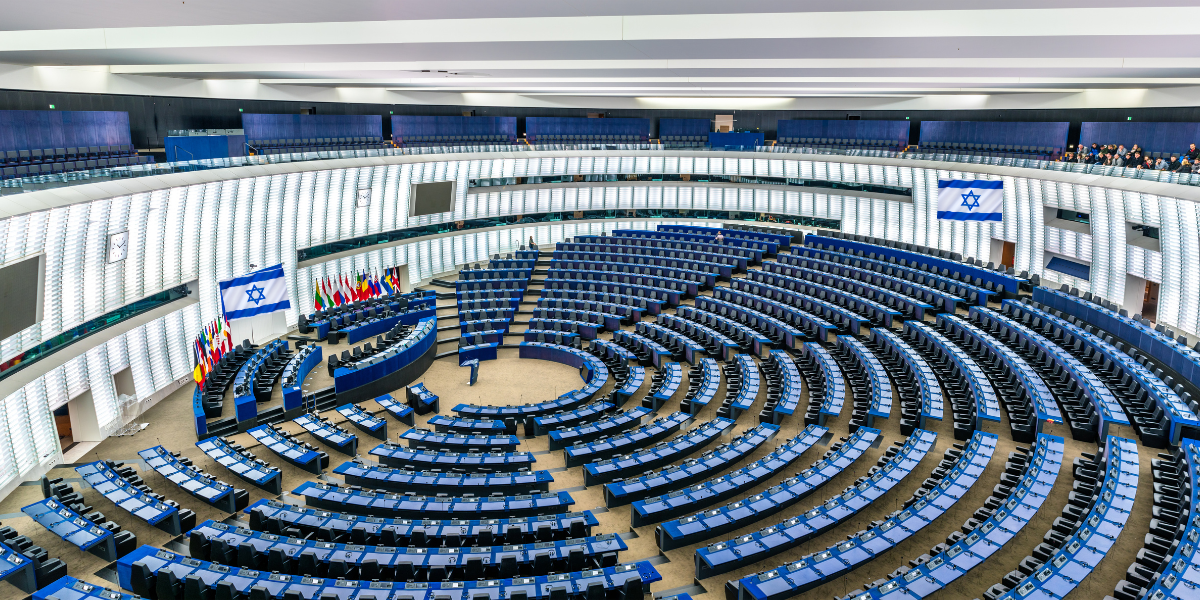In view of the advisory opinion regarding the “occupation” in Judea and Samaria, Israel must re-evaluate its relationship with the International Court of Justice (the ICJ). Despite the ICJ being an organ of the UN, with all the consequent systematic and built-in anti-Israel bias, the State of Israel grants the Court authorities with which to prosecute it. In December, Israel was caught off guard when South Africa filed suit against Israel on grounds of the Genocide Convention despite the predictability of such a suit. There is no justification to repeat that mistake.
In cases of a legal dispute between states, the ICJ can be granted authority to arbitrate in two ways. Such ICJ judgments of state conflicts are binding according to international law, unlike advisory opinions such as the one regrading “occupation”. States can declare in advance their acceptance of the ICJ’s jurisdiction in any future cases of dispute. Such a route is known as “compulsory jurisdiction,” and Israel did indeed accept compulsory jurisdiction in 1950. It withdrew, however, in 1985, following the United States, which withdrew after the Court ruled that it had jurisdiction to hear Nicaragua’s claim against the US. The only other way for a state to force Israel to appear before the Court is through utilizing conventions that Israel is signatory to, which provide for dispute resolution by the ICJ.
Nowadays, states are very careful when signing jurisdictional clauses and Israel tends to avoid such provisions. But from its establishment till the seventies, Israel signed close to ten conventions under which the ICJ’s jurisdiction was accepted with no reservations. Jurists have identified a growing trend where older conventions with jurisdictional clauses are used as a “hook” to reel in a broader conflict under the ICJ’s purview. Although conventions used in such a way involve only a minor point of the conflict, the very appearance before the ICJ grants the suing state a platform for propaganda from which it can broadcast its claims to judges and the media, with the hope of also netting some beneficial judicial decisions for its side of the conflict. Armenia and Azerbaijan, for example, are involved in a years’ long bloody conflict over the Nagorno-Karabakh region, a territory with a majority Armenian population that had been under Azerbaijani rule in the Soviet Union era, and claimed today by Azerbaijan. In 2021, both states filed mutual suits on the grounds of jurisdictional clauses in the 1996 Convention on the Elimination of all Forms of Racial Discrimination (CERD). Although the conflict between the states is national-strategic, both sides “squeezed” the conflict into an ethnic and racial discrimination box. In both their suits, Armenia and Azerbaijan referred to violations that did not come under the convention’s provisions, such as the Armenian policy of ethnic cleansing in the years prior to their signing of the agreement or Azari violations of POW laws.
The convention most useful for dragging another state before the ICJ, after the CERD conventions, is the genocide convention. On the grounds of this convention, Gambia dragged Myanmar before the ICJ, and Ukraine dragged Russia in 2021. Israel’s Ministry of Foreign Affairs should have prepared for a similar occurrence ahead of time by withdrawing from the convention. The option to rejoin with reservations is always available.
Clearly, the judicial framework best suited to evaluate the war in Gaza is the law of armed conflict, but South Africa took advantage of the evidential gap between phases of the genocide convention’s proceedings. The evidence required to prove that a state is carrying out a genocide must be beyond a doubt, and Israel’s humanitarian work in Gaza undermines such a thesis. However, in order to get the ICJ to issue interim orders in the pre-trial stage, South Africa had only to show that the rights it was claiming were “alleged” in the convention and to provide factual claims that were left unexamined by the Court. Thus, South Africa gained a highly respectable platform from which to globally disseminate the anti-Semitic lie that Israel is committing genocide in Gaza.
Among the conventions Israel must withdraw from is the Refugee Convention and its additional protocol, the Convention relating to the Status of Stateless Persons, and the Convention against Discrimination in Education. We may very well soon find ourselves struggling in the ICJ against claims of persecuting stateless Palestinians or Palestinian refugees. And following the widespread destruction in Gaza, it is not too farfetched to imagine claims that Israel violated Palestinians’ basic right to education by destroying schools and universities that served as bases for terrorist activities.
It is time for Israel to wake up and act to defend its citizens by withdrawing from conventions that can be misused for political lawfare against them.
First appeared in N12 [Hebrew] (Jul 20 2024)




